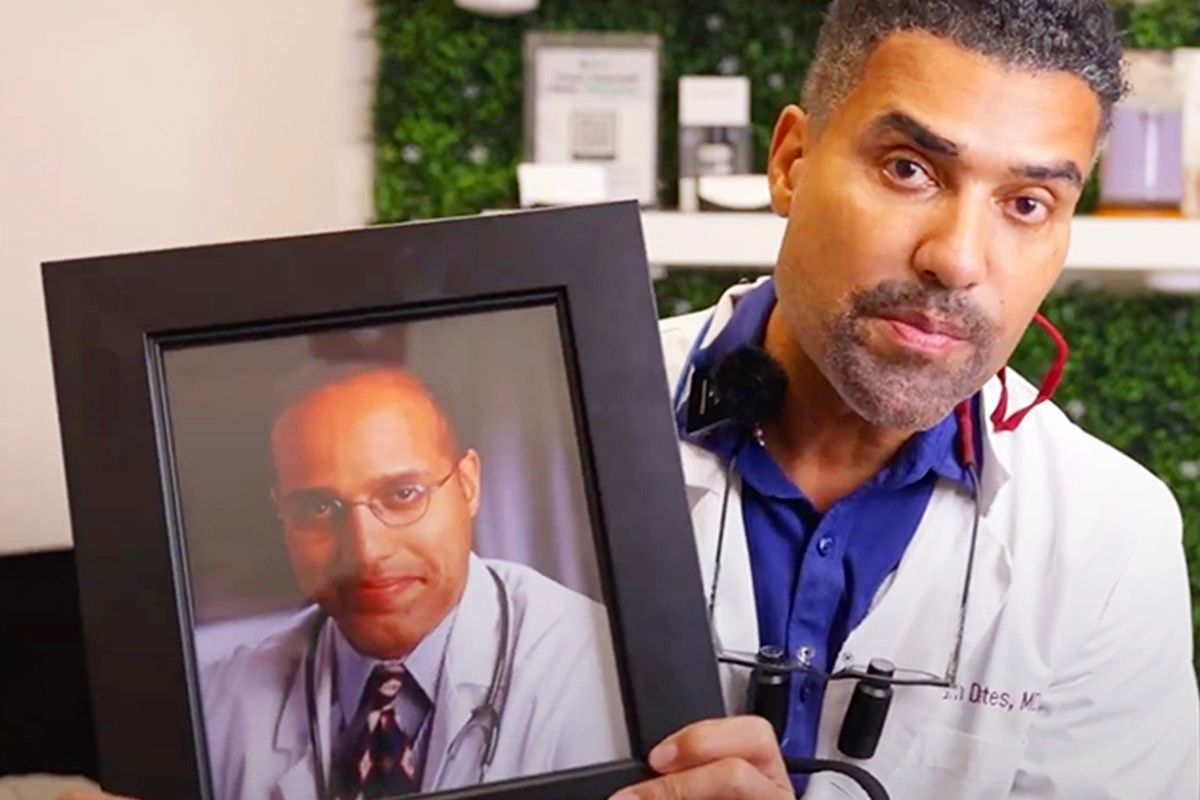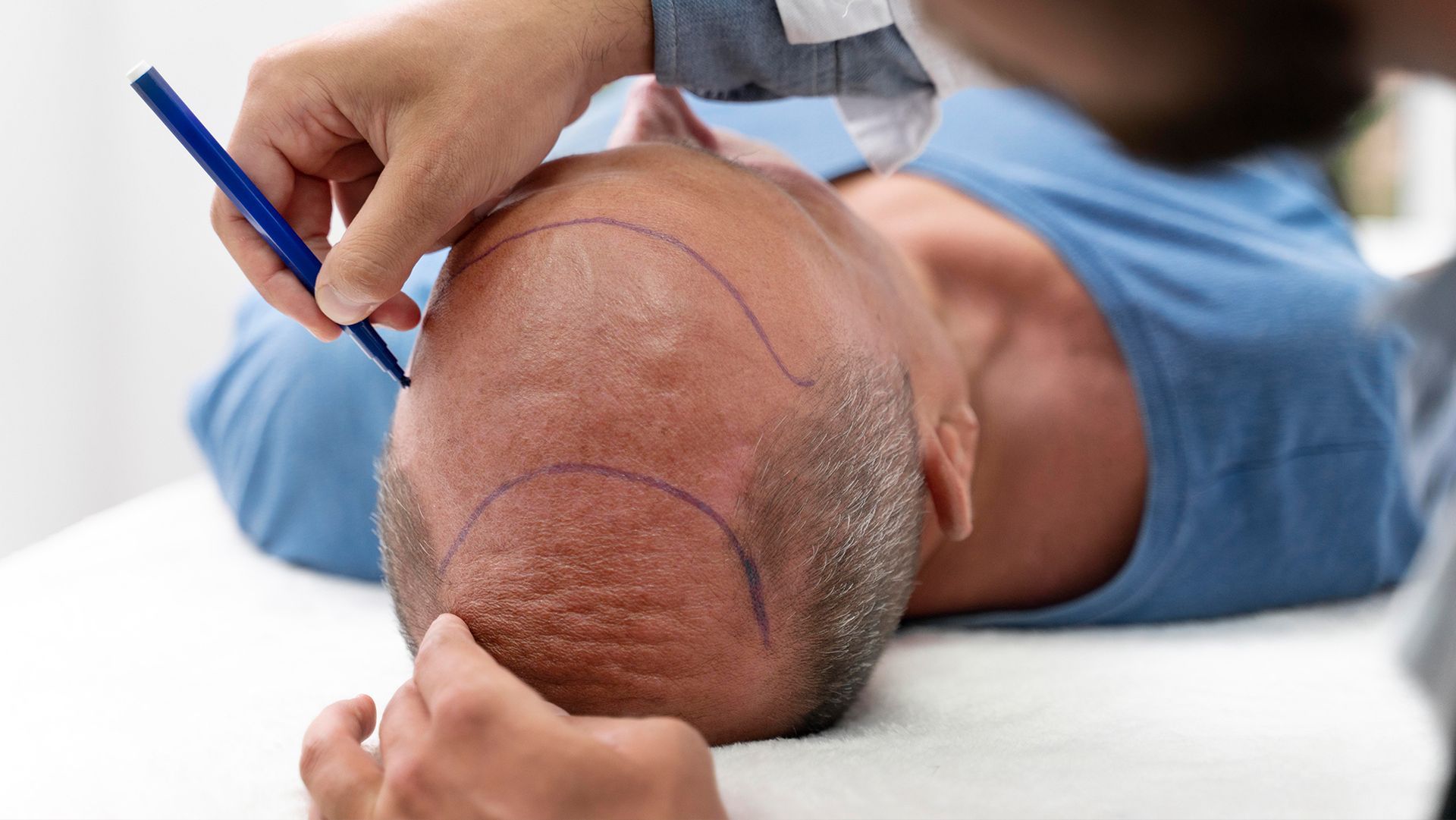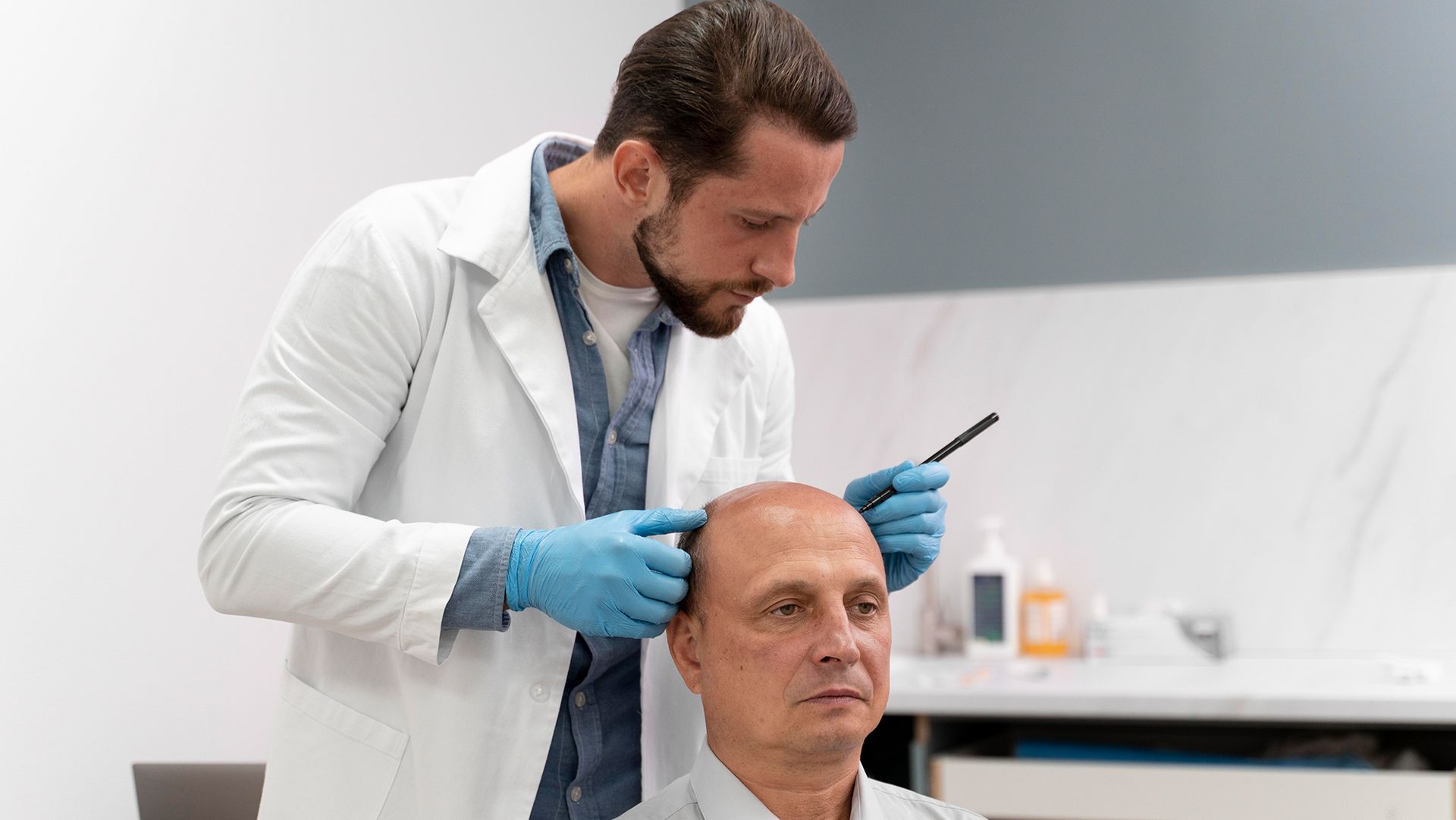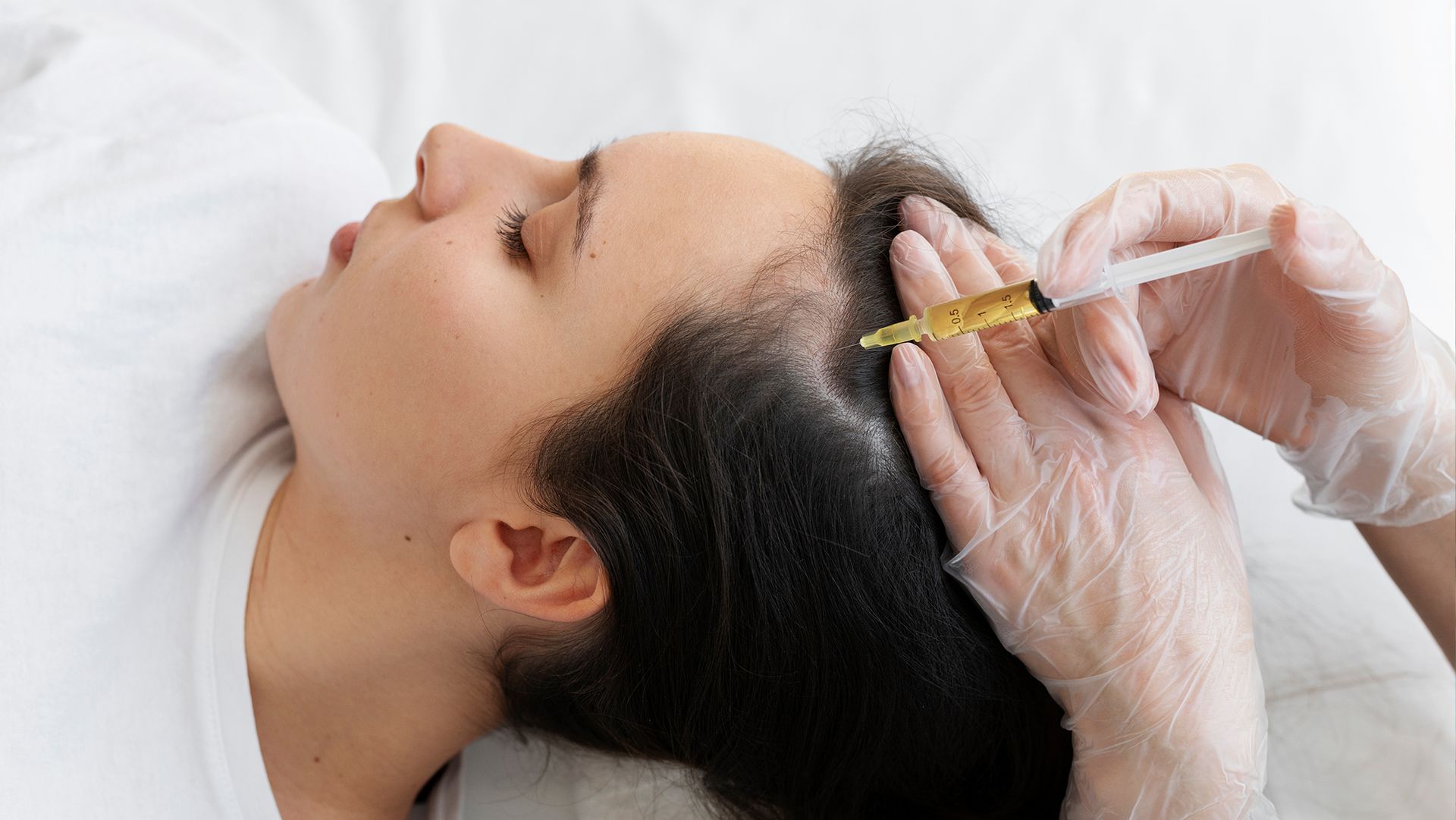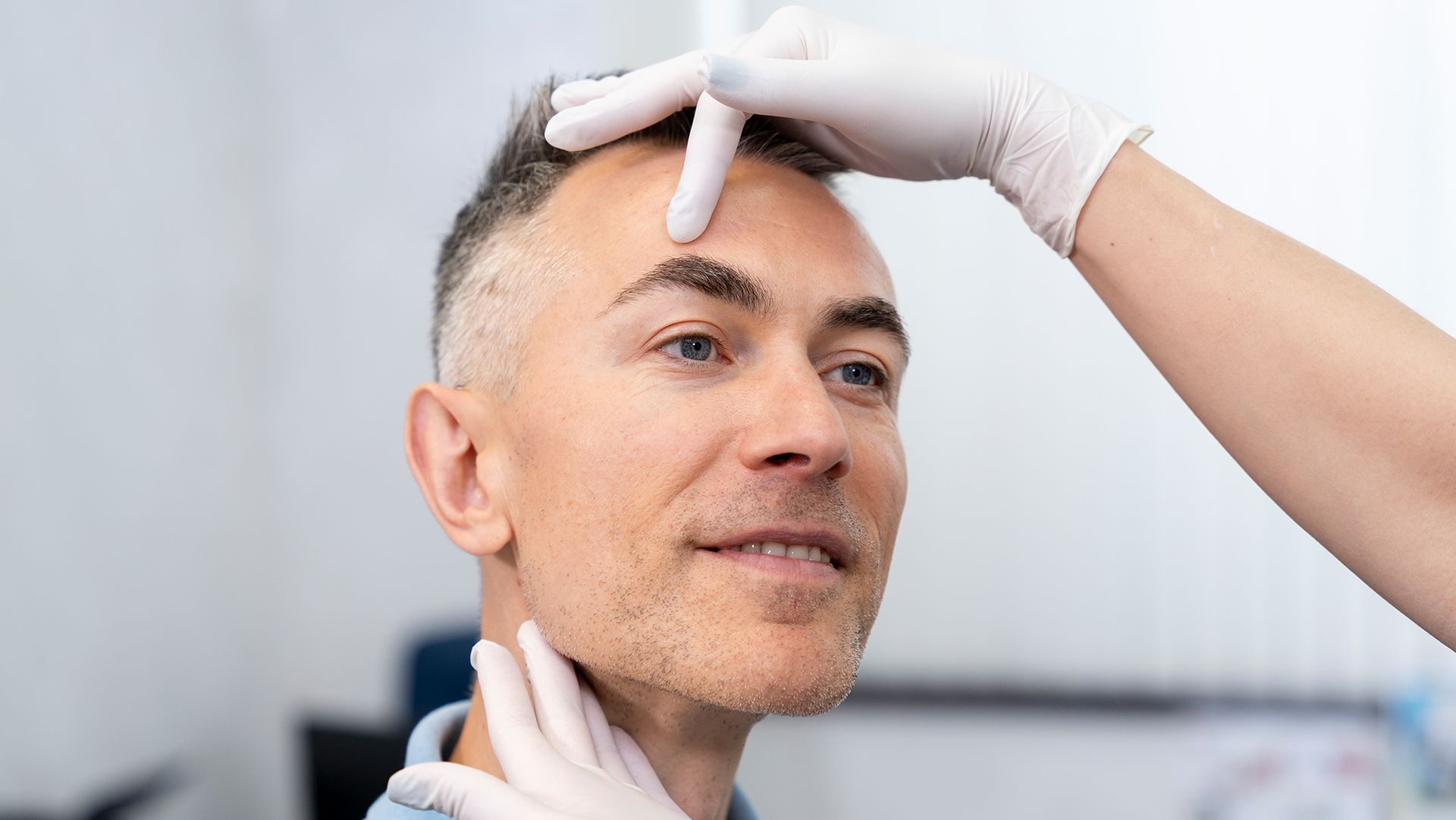Your Guide to the Best Hair Loss Treatment for Men Over 50

Do you know that more than half of men over 50 experience hair loss? It's a common issue that can affect a man's self-esteem and confidence. However, it's not something you have to live with. In this post, we’ll share with you the best hair loss treatment so you can regain not just your hair but also your confidence and vitality.
Can Men Over 50 Regrow Hair?
As men get older, eventually, their hair follicles begin to shrink and produce thinner, shorter strands of hair, ultimately resulting in hair loss. This situation, commonly referred to as male pattern baldness or androgenetic alopecia, impacts a vast number of men globally. However, the good news is that significant strides in science and technology have laid the groundwork for effective solutions.
What is the Best Hair Loss Treatment for Men Over 50?
The ideal hair loss treatment for men over 50 combines medical interventions with natural remedies. This approach not only promotes hair regrowth but also strengthens existing hair, preventing further hair loss.
Medical Treatments
Scientifically proven medications form the basis of medical treatments, designed to stop hair loss and encourage hair regrowth. By focusing on the underlying cause of hair loss, these treatments work to suppress DHT (dihydrotestosterone), a hormone responsible for the contraction of hair follicles.
Natural Remedies
Natural remedies for hair loss include dietary changes, exercise, and scalp massages. These techniques work by enhancing the flow of blood to the scalp, supplying vital nutrients to the hair follicles, and reducing stress, which plays a substantial role in causing hair loss.
Ultimately, the ideal hair loss treatment involves a combination of medical treatments and natural remedies, addressing both the physical and lifestyle factors that contribute to hair loss.
How to Choose the Right Hair Loss Treatment For You
Choosing the right hair loss treatment can seem daunting, but it doesn't have to be. Here are some tips to guide you in your journey to find the best treatment for you.
Understanding your unique needs and circumstances is key to choosing the most effective hair loss treatment. Here's what to consider:
- Consult a professional: Always start by consulting a dermatologist or a trichologist. They can accurately diagnose the cause of your hair loss and recommend the most suitable treatment options.
- Consider your lifestyle: Some treatments require a significant time commitment or lifestyle changes. Be realistic about what you're willing and able to do.
- Research the treatments: Understand the pros and cons of each treatment option. This includes potential side effects, cost, and time required for results to become noticeable.
- Start early: The earlier you start treatment, the better the results. Hair loss is easier to prevent than to reverse.
The best hair loss treatment for men over 50 is one that fits your lifestyle, is sustainable in the long term, and is approved by a healthcare professional. It may take time to see results, so patience and consistency are key.
Key Components of the Best Hair Loss Treatment
The best hair loss treatment for men comprises several essential components that work together to stop hair loss and promote hair growth. These components include:
- DHT Inhibitors: These drugs help reduce the creation of DHT, a hormone known to cause hair follicles to become smaller and result in hair loss.
- Nutrition Boosters: Specifically designed supplements that deliver necessary nutrients to hair follicles, fostering healthy hair growth.
- Scalp Treatments: This includes methods that increase blood circulation in the scalp, supplying vital nutrients to hair follicles and encouraging hair growth.
- Hair Growth Promoters: Often applied directly to the scalp, these products stimulate hair follicles, aiding in new growth and counteracting hair loss.
- Laser Treatments: Low-intensity laser therapy can boost hair growth by enhancing blood flow to the scalp and invigorating hair follicles.
- Topical Solutions: Treatments such as minoxidil can decelerate hair loss and aid in hair regrowth when applied directly to the scalp.
- Anti-Inflammation Products: These products help calm the scalp, lessen inflammation, and create a more conducive environment for hair growth.
- Hair Care Products: Shampoos and conditioners specifically made to fortify hair and curb additional loss.
The best hair loss treatment is a comprehensive approach that addresses the root cause of your hair loss while promoting new growth. Always consult with a professional to create a plan tailored to your needs.
Why Choose a Personalized Hair Loss Treatment Plan
As mentioned earlier, every man's hair loss condition is unique. Therefore, the best hair loss treatment for men over 50 should be tailored to meet the individual's specific needs and preferences. This personalized approach not only ensures the effectiveness of the treatment but also enhances the individual's comfort and satisfaction.
A personalized treatment plan considers various factors such as the individual's hair loss pattern, lifestyle, and overall health condition. It also takes into account the individual's preferences and expectations, ensuring that the treatment aligns with their lifestyle and meets their hair regrowth goals.
This personalized approach sets the best hair loss treatment for men over 50 apart from other treatments. It's not a one-size-fits-all solution, but a tailored strategy designed to deliver the best possible results for each individual.
The Role of Lifestyle Changes in Hair Loss Treatment
Alongside medical interventions and natural solutions, lifestyle modifications are crucial components in the most effective treatment for hair loss in men over 50. These changes can enhance the treatment's effectiveness and foster overall health and wellness.
- Balanced Nutrition. Maintaining a balanced diet is fundamental for healthy hair growth. Specific nutrients, like proteins, vitamins, and minerals, are vital for the well-being and activity of hair follicles. Incorporating nutrient-dense foods into your diet can aid in fostering hair growth and preventing further hair loss.
- Consistent Physical Activity. Regular physical activity can assist in alleviating stress, a primary factor in hair loss. It also enhances blood flow, supplying vital nutrients to hair follicles and encouraging hair growth.
- Sufficient Rest. Getting enough sleep is essential for the body's overall health and functions, including hair growth. As we sleep, the body undergoes cell repair and regeneration, including those within the hair follicles. Thus, ensuring ample sleep can help stimulate healthy hair growth.
- Stress Control. Stress can induce hair loss by pushing hair follicles into a dormant phase where they cease to produce new hair strands. Techniques for managing stress like meditation, yoga, and exercises focusing on deep breathing can aid in averting hair loss and promoting the growth of hair.
Lifestyle changes are integral to enhancing the effectiveness of hair loss treatments, making them a vital component in the battle against hair loss.
Your Path to Hair Regrowth with Yates MD
If you're looking for the best hair loss treatment for men over 50, Yates MD offers a comprehensive solution that combines medical interventions with natural remedies and lifestyle changes. Our treatment is personalized to meet your specific needs and preferences, ensuring the best possible results.
At Yates MD, we understand the impact of hair loss on your self-esteem and confidence. That's why we're committed to helping you regain your hair and confidence through our scientifically proven hair loss treatment. Visit Yates MD today for more information and start your journey to hair regrowth.
Final Thoughts
Hair loss is a common issue among men over 50, but it's not something you have to live with. The best hair loss treatment for men over 50 offers an effective solution to hair loss, combining medical interventions with natural remedies and lifestyle changes. With the right guidance and a commitment to the treatment plan, you can expect to see significant improvements in your hair density and overall appearance.
